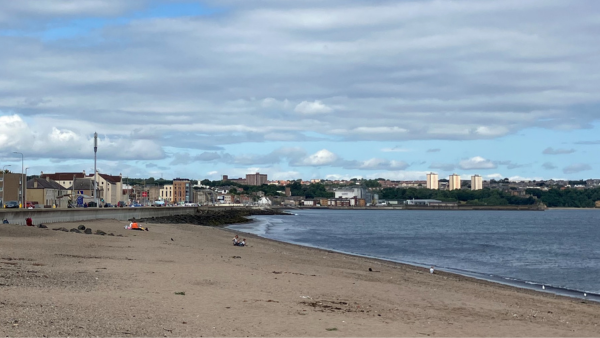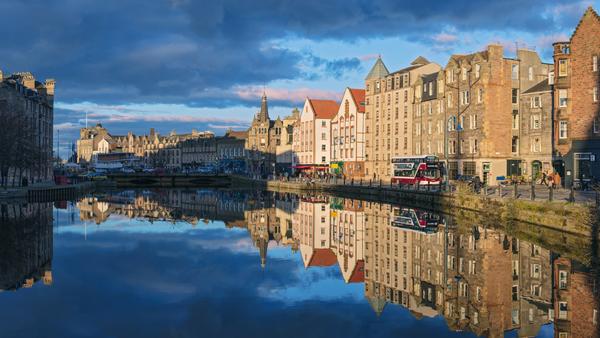The RSA’s 'Design for Life: For People Place and Planet' mission involves a diversity of implications and challenges for our cultural, built and natural heritage. Join us to explore the issues, with speakers who have over decades been closely involved in rising to such challenges and to seeking relevant policy changes at local, national and international levels.
Changing Heritage: How Internal Tensions and External Pressures are Threatening Our Cultural and Natural Legacy is Francesco Bandarin’s most recent book, published April 2024. Drawing on the author's many years of experience working in senior positions at UNESCO (including being ADG Culture 2010-2018 and Director World Heritage Centre 2000-2010), the book presents discussions of heritage sites all around the world. It is said to present the most comprehensive analysis of heritage issues available today. Critically analysing the complexity of the current and forthcoming issues faced by heritage, it presents insightful directions for the future. These are for discussion in this Zoom event open to all, irrespective of discipline, age or location.
Today, our cultural and natural legacies face significant threats due to social and economic developments, political pressures, and unresolved historical issues. Changing Heritage delves into these threats from two distinct perspectives: internal tensions and external pressures. The internal tensions include the disregard for human rights and gender equality; the increasing exploitation of heritage for political purposes; the development of post-colonial perspectives; and the necessity to reassess the established notion of "universal value." External pressures stem from global processes, unsustainable tourism, political conflicts, ethnic clashes, and religious strife that are causing destruction in numerous parts of the world.
Examining the dynamics between heritage and these internal tensions and external pressures, Francesco Bandarin offers insights into the challenges faced and emphasises the imperative role of civil society in safeguarding the value of heritage for present and future generations. Changing Heritage explores a wide range of issues surrounding the crisis in heritage management at an international level.
Speaker:
Dr Francesco Bandarin, ICCROM and AKTC Adviser, and UNESCO ADG Culture 2010-2018
Francesco Bandarin, who has addressed the RSA in Scotland both in person and via Zoom, is an Italian architect and urban planner. He is currently a member of the Advisory Committee of the Smithsonian Institution’s Centre fort Cultural Heritage and also an Adviser to the Aga Khan Trust for Culture. Francesco holds a degree in Architecture from the Venice Institute of Architecture and a Master's degree in Urban and Regional Planning from the University of California at Berkeley. He has pursued an academic career at the IUAV University of Venice as a professor of urban planning, as well as working as a consultant for international organisations in the field of urban conservation and development. In this regard, he was Director of the Special Projects Bureau for the Safeguarding of Venice and its Lagoon and Director of Special Programs for the Preparations for the Jubilee 2000 in Rome. In 2000, he became Director of the UNESCO World Heritage Centre, a position he held for ten years. He served as UNESCO’s Assistant Director-General for Culture from 2010 to 2018. Francesco is author of numerous articles and specialised publications, he recently co-authored The Historic Urban Landscape: Managing in an Urban Century (2012) and Reconnecting the City. The Historic Urban Landscape Approach and the Future of Urban Heritage (2014), published by Wiley-Blackwell. His most recent book is Changing Heritage, published in April 2024 by Routledge.
Panel:
- Professor Daniele Pini, Adjunct Professor, University of Bologna
Professor Daniele Pini last addressed the RSA in person at the 36-hour MCICH Network’s “Festival of Ideas” a decade or so ago. He has a degree in Architecture with honours at the IUA of Venice (1969) and was Full Professor of Urban Planning at the University of Ferrara until his retirement in 2014. He’s currently “guest lecturer” in Urban Conservation at the RLICC of KU Leuven (Belgium) and adjunct professor in Urban planning at the Faculty of Economics of the University of Bologna. His interests are focussed on urban rehabilitation and regeneration as tools for a sustainable development, with special regard to the historic urban fabric revitalisation. He also has a long experience as a consultant to local governments and international organisations in Italy and abroad. In this framework he carried out studies plans and projects for several World Heritage cities, including Algiers (Algeria), Fés and Rabat (Morocco), Zabid (Yemen), Al Ain (UAE) and Mtskheta (Georgia). As an expert of UNESCO World Heritage Centre he participated in the elaboration and implementation of the Recommendation on the protection of the Historic Urban Landscape (HUL), coordinated the studies for the Old Cities of Sana’a, Jerusalem, Damascus and Cairo and is carrying out advisory missions in Iraq for the “Revive the Spirit of Mosul” Project. He is the author of several books and essays on urban conservation.
- Peter Drummond, Conservation Architect, Chair of RIAS Practice and NTS Board Member
Peter Drummond is an architect with over 30 years' experience in conservation, focusing on heritage-led regeneration projects across the UK and Ireland. He has been involved in developing and delivering Townscape Heritage and Conservation Area Regeneration Schemes in such differing and challenging locations as Hartlepool, Orkney, Bute, and Ayrshire. Individual projects have included Gorton Monastery in Manchester (now a successful events venue and community facility), Shrewsbury Music Hall, Bedwellty House in Tredegar, Glasgow’s George Square, Portencross Castle, and Lews Castle as well as expert witness evidence for both Loudoun Castle and Edinburgh's former Royal High School Public Inquiries. A former chairman of the Architectural Heritage Society of Scotland, Peter is current Chair of Practice for the Royal Incorporation of Architects in Scotland, a board member for the Built Environment Forum for Scotland [BEFS] and a Trustee of the National Trust for Scotland.
- Dr Rupert Graf Strachwitz FRSA
Rupert was many years ago the founder and CEO of the Maecenata Foundation, a think tank based in Berlin. He retires in the near future from his CEO role. A member of Europa Nostra Germany, and a member of Europa Nostra’s Council 1992-2012 he is a political scientist. Since 1989 he has been involved in research and public policy on civil society and philanthropy, with around 700 publications to his name. He teaches and lectures at home and abroad on boards of philanthropic and other institutions, including the German-British Society and the International Rescue Committee. In the past he also served at the Sovereign Military Order of Malta’s HQ as regional director for the OM German Relief Service and as President of the Duke of Bavaria’s administration.

